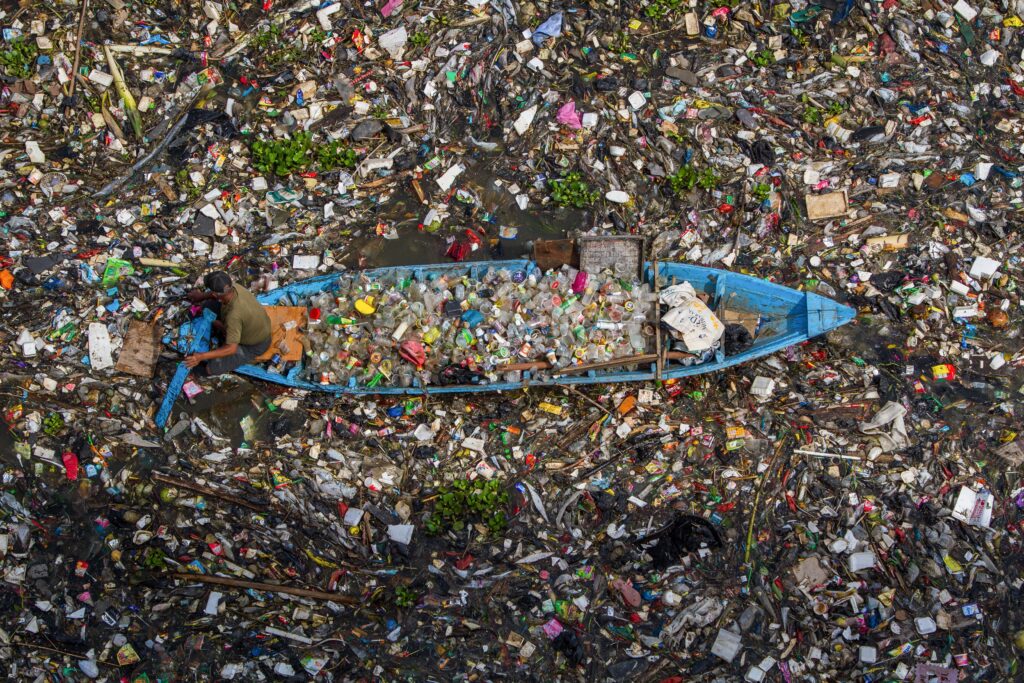After nearly two weeks (5–14 August 2025) and two draft texts from the Chair, delegates failed to find consensus and the session ended in stalemate.
There has yet to be confirmation of a roadmap for the next round of talks.
The UK’s Marine Minister Emma Hardy said: “I’m hugely disappointed that an agreement wasn’t reached, but am extremely proud of the way the UK worked tirelessly until the end to seek an ambitious and effective treaty.
“Plastic pollution is a global crisis that no country can solve alone, and the UK is committed to working with others at home and abroad to protect the environment and pave the way to a circular economy.”
Draft plastics treaty ‘completely unacceptable’
Environmental NGOs have expressed disappointment in the outcome, warning against the risks of inaction.
Discussing the draft texts, Nicholas Mallos, Vice President of Ocean Conservancy’s ocean plastics program, said: “With plastic pollution at crisis levels globally, the Chair’s draft text is completely unacceptable: it includes no mention of plastics reduction and any mention of ghost gear – the deadliest form of plastic pollution to marine life – has been scrubbed from the text.”
Ghost gear includes fishing equipment that has been abandoned, lost or discarded in the ocean, including nets, ropes and traps.
Sian Sutherland, Co-Founder of A Plastic Planet and thePlastic Health Council, added: “The failure to reach agreement on the UN Global Plastics Treaty represents a devastating capitulation to big oil’s interests.
“After three years of unprecedented collaboration a minority of governments have scuppered the opportunity for binding health and production commitments that were fundamental to the Treaty’s effectiveness.”
Lobbyists stall resolution
During the talks, WRAP attendees commented that “progress is slow” due to the wide gulf in interests between national delegations.
A coalition of nearly 100 countries – including the EU, UK, Colombia, several African and Pacific states – insisted on legally binding limits on virgin plastic production.
However, diplomats and observers reported an intensive lobbying effort by fossil fuel and petrochemical interests, which argued that production caps and additive bans would damage economic growth, raise consumer costs, and infringe on national sovereignty.
Graham Forbes, Greenpeace Head of Delegation to the Global Plastics Treaty negotiations and Global Plastics Campaign Lead for Greenpeace USA, said: “The vast majority of governments want a strong agreement, yet a handful of bad actors were allowed to use process to drive such ambition into the ground.
“We cannot continue to do the same thing and expect a different result. The time for hesitation is over.”
Call on UN to make use of next round
Following the breakdown of negotiations, calls have been made for the UN to advance the next round quickly, without letting differences stall progress any longer.
Benny Mermans, Chairman of the World Plastics Council and Vice-President Sustainability at CPChem, said: “We deeply regret that UN member states were unable to reach an agreement to end plastic pollution in Geneva but remain optimistic that a deal is possible.
“To achieve this all parties must recognise that countries and regions face different challenges and have different perspectives. We must not let diverging ambitions get in the way of real-world progress.”
Virginia Janssens, Managing Director at Plastics Europe added: “Plastic pollution is a global – not regional – challenge, and we urge all UN member states to resume multilateral efforts as soon as possible.
“Plastics Europe has consistently championed the importance of collaboration between governments, industry, and civil society, and the need for negotiators to stay focused on identifying common and nationally adaptable solutions if we are to achieve an equitable and ambitious global plastics agreement.”







Subscribe for free